Eric Hommelberg puts British gold sales in perspective
GATA's longtime supporter Eric Hommelberg, editor of The Gold Discovery Letter and The Gold Drivers Report, has just published an essay putting into great perspective the renewed controversy over the Bank of England's gold sales. Hommelberg's essay is titled "Gold and GATA" :
GOLD & GATA
Sunday Times - Brown lost £2bn selling UK's gold
by Eric Hommelberg
April 15, 2007
GATA got another tremendous credibility boost today by a devastating article in the Sunday Times on the controversial gold sales announced by the Bank of England on May 7, 1999.
It was believed by GATA at that time that the timing of the announcement of these gold sales only had to serve one single purpose which was to drive the gold price down.
The price of gold had to be taken down since gold was at the verge of a significant break-out above the $290 mark which would hurt the commercial gold traders and banks which were heavily short at that time tremendously.
The funny thing is that two of the of the big short players at that time (JP-Morgan and Deutsche bank) informed their clients the day before the BOE gold sale announcement that gold was NOT GOING ABOVE $290. Now how did they know that? (source: Bill Murphy, LeMetropleCafe, May 10, 1999)
Well, the very next day we all knew why gold was not going above $290.
So from that perspective Gordon Brown’s decision to sell off half of Britain’s gold reserves and to announce the gold sale in advance could be considered as a great success since he got what he wanted, a crashing gold price which made it possible for the short players to cover at more convenient price levels.
Sure enough Blair and Brown came under heavy pressure since selling gold at rock bottom prices is about the most foolish thing one can do and has cost the British tax payer already more than 2 billion pounds and is likely to increase dramatically the years ahead.
You think these remarks re gold price manipulation/bailing out shorts are exaggerated?
Well, read on…
Suspicion on the announced gold sales ran so high that chief executives and chairmen of Placer Dome, Newmont Mining, Ashanti Goldfields, Homestake Mining, Gold Fields, and Anglogold wrote an open letter to Tony Blair. This letter included:
On 16 June 1999, in the House of Commons, Mr. Quentin Davies, from the Opposition Front Bench, speaking in the debate on gold sales, said that there is a persistent rumour concerning the position of international investment banks.
Mr. Davies said:
"...We cannot allow the rumors to grow, because they are extremely dangerous to public confidence. It has been suggested that the market is very short of gold, that the short positions may be a substantial multiple of the total amount of gold currently held by the Bank of England, and that the Bank's real motive is to save the bacon of firms that are running those short positions. ...Has the Government's whole plan been simply to drive down the gold price by whatever means, fair or foul, to save the position of certain figures in the city which apparently, are so short and potentially in such trouble?"
END.
Sure enough these allegations were denied by Blair and Brown but as John Embry (Sprott Asset Management) noted in his excellent report ‘Not Free, Not Fair, The Long Term Manipulation of the Gold Price’ it seemed the decision to sell half of Britain’s gold was ordered by British government over the objection of BOE officials.
Nevertheless the British government has maintained all these years that the gold sale decision was made consulting with the Bank of England. On July 14, 1999, Prime Minister Tony Blair said the following in the House of Commons:
"We sold gold on the technical advice of the Bank of England, and other countries have also sold gold."
Now this statement ‘we sold gold on the technical advice of the Bank of England’ contradicts what The Sunday Times found out and published today.
Sunday Times - Brown lost £2bn selling UK's gold
April 15, 2007-04-15
From interviews with key Treasury, Bank of England and gold market insiders involved in the decision, The Sunday Times has established:
o The Bank of England, which has managed Britain’s gold reserves for more than 300 years, was never asked for its advice on whether Britain should sell the gold. A senior Bank of England executive said the timing of the sale was “not debated”.
o At a secret meeting with senior gold traders, Bank of England officials were warned that the proposed auctions would achieve the worst price for taxpayers. The officials are understood to have agreed with the analysis but said they were powerless to influence the Treasury.
o Several Asian countries including China are named by an insider as having bought the gold “on the cheap” from the Treasury. The Chinese may have made more than £1 billion from Brown’s botched sell-off.
Warnings over the risks of losing money from the gold sell-off are understood to be set out in internal correspondence sent by Bank of England officials to the Treasury in 1999.
Last night the Bank of England sought to distance itself from the decision to sell off the gold. In an unusual intervention, it said: “In regard to the gold sales, the Bank acted solely as agent and the decisions were taken by HM Treasury.”
Its statement casts doubt over previous assurances given by Treasury ministers and Tony Blair to parliament that the decision to sell the gold reserves was made on the “technical advice of the Bank of England”.
A senior investment bank director, present at a meeting held by the Bank of England in May 1999 to discuss the sell-off, said: “We were told this was a Brown thing and that the Bank had no say over what was going on. The officials were unhappy.”
Let’s repeat one sentence here:
“Bank of England officials were warned that the proposed auctions would achieve the worst price for taxpayers. The officials are understood to have agreed with the analysis but said they were powerless to influence the Treasury. “ END.
You still think British government acted upon advice from the Bank of England? You really think that Blair told the truth when he said in the House of Commons:
We sold gold on the technical advice of the Bank of England. END
You really think it is coincidence that two major short players in the gold market told their clients just one single day before the BOE gold sale announcement that gold IS NOT GOING OVER $290?
The bottom line is:
Central banks have been supressing the price of gold for more than a decade by excessive gold sales and loans. It should be noted that it’s not only the Bank of England that lost half of its gold reserves but word is that only about 15.000 tonnes of gold is left in the vaults of the central banks world wide instead of the claimed total of 30.000 tonnes. The current central bank gold holding figures are misleading since they report leased gold as being a reserve asset. When the investment world learns what GATA knows they will realize that half of all central bank gold is already gone and gold prices will go ballistic.
It’s important to know what GATA knows since gold prices exceeding the $2000 mark before the end of this decade isn’t an illusion but could come earlier as you might expect.
Now please don’t think GATA is a bunch of dreamers since many heavy weight gold analysts like eg John Embry, Doug Casey and Peter Grandich already joined the GATA bandwagon for quite some time now.. Hope you’ll do the same!
Ps readers interested in detailed background info and history on GATA can take a peek at a lengthy piece I wrote on GATA in May 2005. You can find it here at:
http://www.gold-eagle.com/editorials_05/hommelberg051505.html
or else go to GATA's website at www.gata.org
Best Regards,
Eric Hommelberg
The Gold Discovery Letter/
The Gold Drivers report
www.goldddrivers.com
Labels: central banks, GATA, gold, market manipulation















![[Most Recent Quotes from www.kitco.com] [Most Recent Quotes from www.kitco.com]](http://www.kitco.com/images/live/t24_au_en_usoz_6.gif)
![[Most Recent Quotes from www.kitco.com] [Most Recent Quotes from www.kitco.com]](http://www.kitco.com/images/live/au_go_0030_ny.gif)
![[Most Recent Quotes from www.kitco.com] [Most Recent Quotes from www.kitco.com]](http://www.kitco.com/images/live/au_go_0365_ny.gif)
![[Most Recent Quotes from www.kitco.com] [Most Recent Quotes from www.kitco.com]](http://kitconet.com/charts/metals/silver/t24_ag_en_usoz_4.gif)




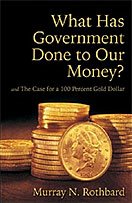

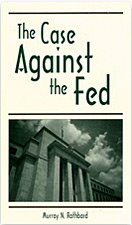

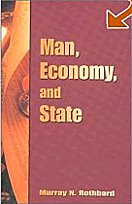


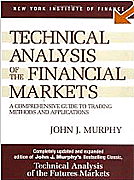
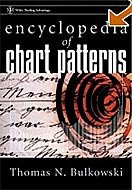




0 ΣΧΟΛΙΑ (COMMENTS):
Post a Comment
<< Home